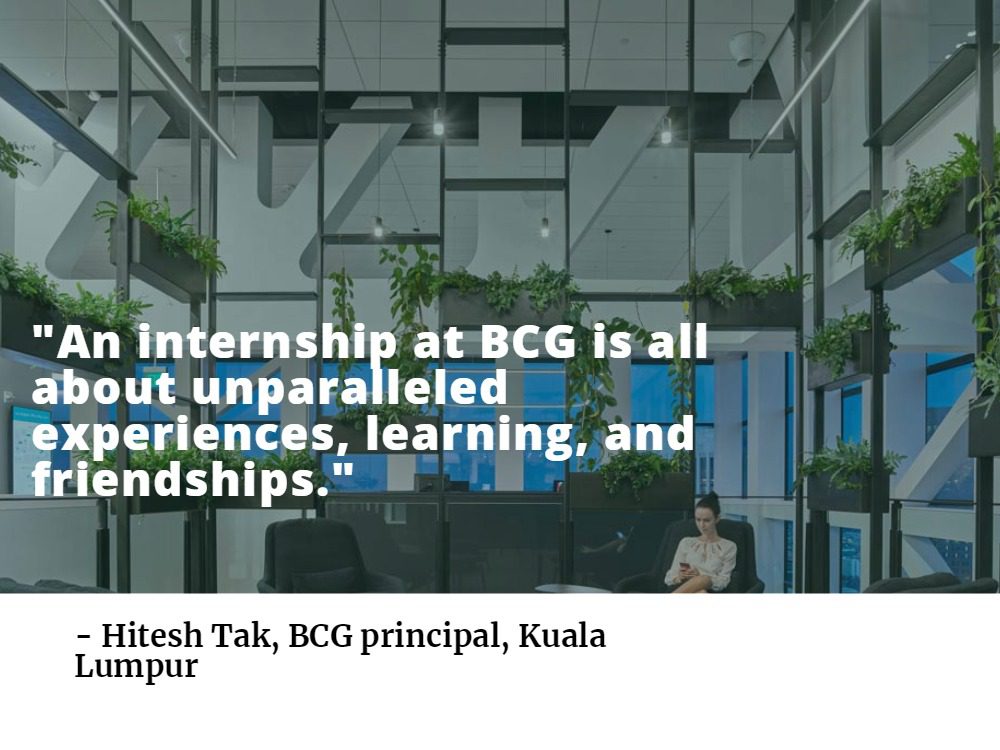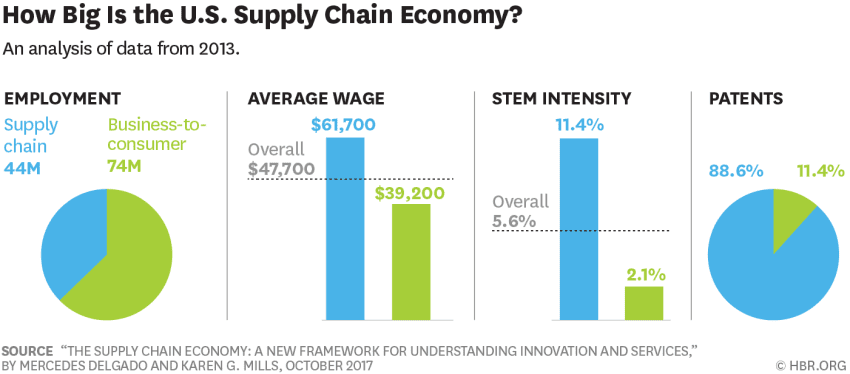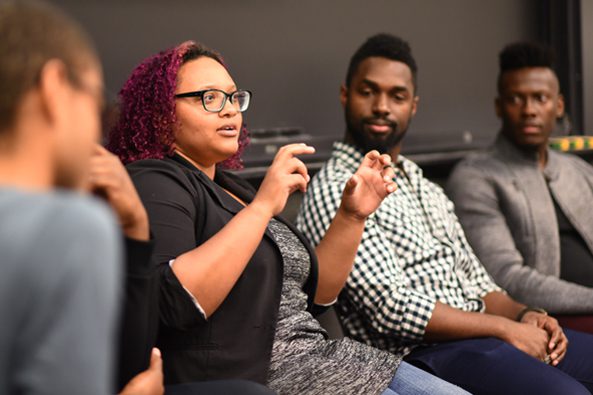What are the Best Real Estate MBAs in Boston?

Despite episodic waves of unrest, real estate is a worthy investment. More importantly, real estate is a cornerstone of the world economy. The importance of understanding the intricacies and nuances of this complex field cannot be overstated.
In Forbes, Yolanda Barnes, who runs Savills World Research, said, “real estate is the pre-eminent asset class which will be most impacted by global monetary conditions and investment activity and which, in turn, has the power to most impact national and international economies.” For the B-school-bound, becoming fluent in real estate’s many facets can provide a valuable edge in nearly every area of business.
Below, we’ve laid out the best Boston real estate MBA options for those looking for careers in the industry.
Harvard Business School
It would be remiss to talk about business education in Boston without mentioning Harvard Business School. HBS is easily one of the most reputable business schools in the world. Forbes places the university in its top three “Best Business Schools.” For those pursuing real estate, Harvard MBA’s have access to the Harvard Business School Real Estate Club, which provides its members with opportunities for supplemental real estate education, training, and extensive networking. Harvard also hosts an annual Real Estate Weekend, wherein students can buy tickets to attend development workshops and fireside chats with industry experts.
F.W. Olin Graduate School of Business – Babson College
At Babson College’s F.W. Olin Graduate School of Business, MBA students can pursue the finance concentration, which offers several courses in real estate. Students can rake courses like Real Estate Financial Modeling, Real Estate Fundamentals, or Real Estate Development. According to recent Olin graduate employment statistics, 10 percent of the 2017 MBA class landed jobs in real estate. This number may not seem overwhelming, but it dwarfs the percentage seen in many MBA programs (usually about two to three percent).
Sloan School of Management – MIT
MIT’s Sloan School of Management offers an MBA that incorporates real estate education. Though the school also offers an MS in real estate development (MSRED) for those more focused on earning a degree in real estate than an MBA, the MBA finance track offers a different set of advantages. This track zooms in on the finance-related areas of real estate, such as investment, urban economics, and housing economics. The MBA real estate courses zero in on the financial component of the industry and the core MBA courses also help students build a broad foundation in business. MBA students pursuing a certificate in finance can take courses like Real Estate Finance and Investment and Real Estate Capital Markets.
Why McKinsey & Company Loves Hiring MBAs

McKinsey & Company is considered one of the most prestigious management consultancy firms in the world, with a clientele that includes 80 percent of the world’s largest corporations, along with an extensive list of governments and non-profit organisations. The firm is also a prestigious landing spot for MBAs following graduation. Continue reading…
How Can You Get a Job at Boston Consulting Group in 2018?

Boston Consulting Company—a global management consulting firm— has offices across more than 90 cities and 50 countries, advising clients in the private, public, and not-for-profit sectors, including a healthy chunk of Fortune 500 companies. Considered one of the most prestigious management consulting firms in the world, BCG was ranked fourth in Fortune’s “100 Best Companies to Work For” in 2018.
But, how can an MBA help you land a BCG job?
Working for BCG
According to Management Consulted, BCG has a demanding recruiting and hiring system. The firm hires undergrads as associates who work for two to three years before moving on or pursuing an MBA. However, it is very difficult and highly unlikely for an associate to make the leap to consultant without an MBA. If you’re hired as an MBA, you enter as a consultant with plenty of room for growth—to project team leader, principal, and then, finally, as a partner partner.
According to former BCG senior partner Lucy Brady, the company looks for a candidate’s record of academic and professional success, but also want to hire candidates who have overcome setbacks.
“We look for resiliency and adaptability, and the ability to learn from your mistakes and grow from them,” she said in a previous interview.
CNN revealed that 11.72 percent of MBAs want to work for BCG. However, BCG’s recruiting process is demanding, with Glassdoor previously ranking the firm among the most difficult companies to interview with.
The high job demand and lengthy interview process isn’t without reason: MBAs typically thrive at BCG due to the companies the emphasis on career development. BCG’s PTO (predictability, teaming, and open communication) policies allow for a healthy work-life balance for employees, which has paid numerous dividends. Internal surveys have shown that the program has led to a 74 percent increase in reported intentions to stay with the company for the long term. BCG was also among the companies that signed the 2016 White House Equal Pay Pledge.
BCG Recruiting on Campus
BCG actively recruits students on college and university campuses around the world. Campus visits are a way for students to connect with BCG, learn more about potential job opportunities, and feel out whether a career at BCG is a good fit.
“We have a presence at many of the top universities across the U.S., including Harvard, Stanford, the University of Pennsylvania, Northwestern, University of Michigan, Duke, and the University of Texas,” Tina Gao, BCG recruiting director, said in a previous interview. “We come to campus and hold a presentation to introduce the company and then are available for Q&A sessions. We also come back to help people train for our interviews and learn more about the company. We’ll come back to campus to interview the candidates we choose.”
You can see more upcoming BCG on campus events here. However, if your campus does not have a dedicated page, BCG encourage students to complete an online application for consulting internships.
BCG Internships
BCG’s consulting internship programs can be a great opportunity for students to get a feel for the the life of a consultant. BCG Associate and Consultant interns work with current BCG consultants, and are expected to contribute to a real client project. Interns are considered as true case team members and are tasked with everything from working on client projects to socializing with colleagues.

According to BCG, internships vary depending on the project or location. Some interns are expected to travel, but do return to their home offices at the end of each week for special events and social activities. Orientation and training sessions ease interns int their roles before being assigned to a case that aligns with their personal and professional goals, as well as the firm’s business needs.
BCG accepts online applications from exceptional business school, engineering, science, law, and humanities students who are nearing the completion of their undergraduate or graduate studies.
BCG MBA Fellows
If you’re an MBA who wants to get your foot in the door at BCG, it’s worth looking into the BCG Fellows MBA Program, which provides top applicants with monetary awards and individual mentorship by BCG consultants.
The fellow program is only available to full-time MBAs studying at the following business programs: Columbia Business School, Fuqua School of Business, Kellogg School of Management, Harvard Business School, MIT Sloan School of Management, Stanford Graduate School of Business, Stern School of Business, Tuck School of Business, Anderson School of Management, Booth School of Business, Ross School of Business, Darden School of Business, The Wharton School and Yale School of Management.
BCG MBA Salaries
If you score a job at BCG, you’ll also be earning a big paycheck—well worth the hours of MBA studies and the rigorous recruiting process. According to Management Consulted, MBAs hired a BCG make earn the following within their first year of employment:
- Signing Bonus: Up to $30,000
- Base: $147,000
- Relocation: $2,000-8,000
- Performance Bonus: up to $44,100
- Retirement: Profit-sharing into a 401k
What They’re Saying: Business Schools Talk About Cambridge Analytica

Less than a week after Christopher Wylie, the whistle-blower in the ongoing Cambridge Analytica controversy, helped reveal the “dirty tricks” the data mining firm used to help swing elections in North America, Europe, and Africa—including the 2016 U.S. general election—business schools are reacting to the dynamic story.
In short, UK television outlet Channel 4 News filmed several Cambridge Analytica members in an undercover operation, in which they revealed numerous strategies, including: soliciting fake bribes, hiring prostitutes to seduce potential candidates in elections, and more. Company chief executive Alexander Nix was also filmed in the video, which you can watch here, boasted the company’s outreach methods on social media, saying: “It sounds a dreadful thing to say, but these are things that don’t necessarily need to be true as long as they’re believed.”
Another member of the Cambridge Analytica team also argued that they constructed President Donald Trump’s popular “crooked Hillary” campaign slogan from 2016.
Further, the controversy revealed how the company pilfered upwards of “50 million” Facebook profiles, most of which came without consent. Facebook and its founder Mark Zuckerberg played silent on the ongoing story up until March 21, plainly saying in a CNN interview “I’m really sorry that this happened.”
“Aleksandr Kogan, the data scientist who passed along data to SCL Group and its affiliate Cambridge Analytica, built a Facebook app that drew data from users and their friends in 2013. He was allowed access to a broad range of data at the time.
Though Kogan’s data was properly obtained, he breached Facebook’s policy when he shared that information with a third party, Facebook has said. When Facebook learned about the information being shared, it asked Cambridge Analytica to destroy the data. Cambridge said it had.”
Wylie notes that Cambridge Analytica probably never destroyed that data, inevitably leading towards the company’s involvement in the 2016 election. Several of the nation’s most prominent business schools talked about the story on Twitter, which you can read below.
André Spicer, Professor of Organisational Behaviour, on Cambridge Analytica and the possibility of tech companies being forced to expand regulations on privacy and social responsibility.
Read André’s comments: https://t.co/O5IAlUTD5t#cambridgeanalytica#cassbusinessschoolpic.twitter.com/GWv95RUIMc
— Cass Business School (@cassbusiness) March 21, 2018
“The really big issue is if regulators start questioning the business model of tech firms. Currently, consumers give away their data in exchange for free services, but what if regulators start putting a price on people’s data?” –
Cass Business Professor André Spicer
Q&A with @cyberlawclinic‘s @vivekdotca about Facebook and Cambridge Analytica, U.S. privacy protections, and the regulation of the tech industry https://t.co/LPKwwSKSXw
— Harvard University (@Harvard) March 22, 2018
The head of the European Parliament announced on Monday that the EU will investigate whether the data of more than 50 million Facebook users were misused when it was accessed by Cambridge Analytica! https://t.co/q946Hed417
— FOX MBA & MS (@FoxMBA) March 22, 2018
Cambridge Analytica said it’s suspending its CEO immediately and is launching an independent investigation into allegations it misused data on millions of Facebook users. https://t.co/EKeXiuHeQF
— MIT Tech Review (@techreview) March 21, 2018
MIT Explores Happiness, and More – Boston News

Let’s explore some of the most interesting stories that have emerged from Boston business schools this week.
Probing the Origins of Happiness – MIT Newsroom
On the #InternationalDayofHappiness, Kara Baskin at the MIT Sloan School of Management explored the new book “The Origins of Happiness: The Science of Well-Being over the Life Course,” which was co-authored by MIT Sloan Ph.D. student George Ward. Talking about his work, Ward explains how global governments have been attempting to tap into the data of happiness in hopes of shaping future policies.
“We wanted to bring together this body of work in a systematic, quantitative way,” he explains. “Often, these are single studies that say ‘x’ is important for happiness; ‘y’ is important for happiness. In this book we try to provide an overarching framework that documents what makes for a satisfying life.”
“On the policy side,” he continues, “more and more countries are using well-being data in the real world. As we speak to policymakers, they often ask the question: ‘Look, we’re measuring this now and we have the impetus to improve these figures, move up these tables of happiness, and make our citizens enjoy their lives more. What can we do?'”
You can read the rest of the Ward interview here, and grab a copy of “The Origins of Happiness: The Science of Well-Being over the Life Course” today.
The Supply Chain Economy and the Future of Good Jobs in America – Harvard Business Review
The Harvard Business Review recently published an article from Mercedes Delgado and Karen Mills that outlines the increased role service suppliers will play in what some have dubbed the “supply chain economy.” Supply chain industries are simply “businesses that manufacture parts to be used in a final good,” like plastic injection molders and metal stampers.

These industries “have a crucial role in driving innovation and creating well-paying jobs,” in part because they “have downstream linkages to multiple industries, which allows the innovations they create to cascade and diffuse across the economy, potentially increasing the value of those innovations.”
Read more about HBS’ policy suggestions to emphasize “suppliers’ access to skilled labor, buyers, and capital” here.
BU Grad Schools Among Nation’s Best – BU Today
Several schools in the Boston metro saw a nice rankings boost in the recently release U.S. News & World Report Best Business Schools 2019 list, with the Questrom School of Business at Boston University leaping up two spots overall from last year, up to 42nd overall. The school’s part-time program also finished 10 spots better than last year, coming in 32nd overall.
In a release, Kenneth Freeman, Allen Questrom Professor and Dean in Management, said, “Rankings are inherently imperfect, but we appreciate the acknowledgement of the quality and reputation of our students, program, and alumni. Each year, we adjust our curricular content in response to student needs and our increasingly engaged corporate partners to create experiential opportunities to bridge the classroom and industry.”
You can catch up on the rest of BU’s graduate schools in the new ranking here.
Harvard Talks Analytics, MIT Explores Diversity in Tech, and More – Boston News

Let’s explore some of the most interesting stories that have emerged from Boston business schools this week.
Should an Algorithm Tell You Who to Promote? – Harvard Business Review
Professor of human resource management Jeffrey T. Polzar published a fictionalized case study that illuminates the influential role that “people analytics” algorithms play in steering hiring managers to which hot new talent. In a recent interview with Harvard Business Review, Polzar said:
“The day after Anne’s farewell party, Aliyah met with Christine and Brad Bibson, a data scientist on the people analytics team. ‘We’ve just started looking at networks,” Brad said, ‘and we think they can reveal some useful information. These are network analyses based on Molly’s and Ed’s e-mail and meeting history at BBI. With their permission and without looking at the content of their e-mails or calendars, we analyzed who they had been in contact with across the firm over the past six months.'”
Explore more of the fictionalized case study here.
Diversity in Tech a “People Problem” In Need of a Management Solution – MIT Sloan Newsroom
The MIT Sloan Coders Club recently hosted the Black in Tech and Entrepreneurship panel, in which a group of five entrepreneurs and engineers “shared experiences and offered suggestions on what tech companies can do to diversify their workforces and diminish bias.” Adam Taylor, founder of news app Black, explains:
“It is a people problem. When you think about the people that are on your teams professionally, how would you hire someone to work with you every day for however long they’re with your company? You tend to hire people you’re comfortable with.”

Students Roderic Morris of Drift, Amal Hussein, Nana Essilfie-Conduah, and Adam Taylor / Photo via Mimi Phan
Read more about this diverse take on tech’s diversity issue here.
AI Knows What Customers Want, Transforms Supply Chains – D’Amore-McKim Blog
D’Amore-McKim’s distinguished professor of supply chain management Nada Sanders uses Spanish “fast fashion” company Zara as the shining example of an optimized supply chain that uses artificial intelligence to drive customer satisfaction. In fact, many other businesses have begun to crib notes.
“Seven-Eleven Japan has taken lessons from Zara, using technology to microsegment demand and to understand what customers want. They will literally reshuffle and change what the merchandising looks like in the course of one day, in one location, for different segments of customers.”
Read more about professor Sanders’ research here.
Babson Reveals New Scholarships, Rankings, for Blended Learning MBA – MetroMBA
MetroMBA recently spoke with F.W. Olin Graduate School of Business faculty director Phillip Kim about the shape of the Babson Blended Learning hybrid online MBA program, shortly after the school earned some high praise from the likes of the Financial Times.
“Our program integrates the best of the ‘full-time’ graduate experience with a delivery format designed for working professionals, whose time is at a premium. Our students can complete their MBA in 21 months while working full-time. They learn from accomplished faculty, who are experts in their own disciplines and translate academic concepts into practical takeaways for our students. We are also the number one school for entrepreneurship education, and this ethos is infused throughout the program.”
Read more of our interview with Kim here.
